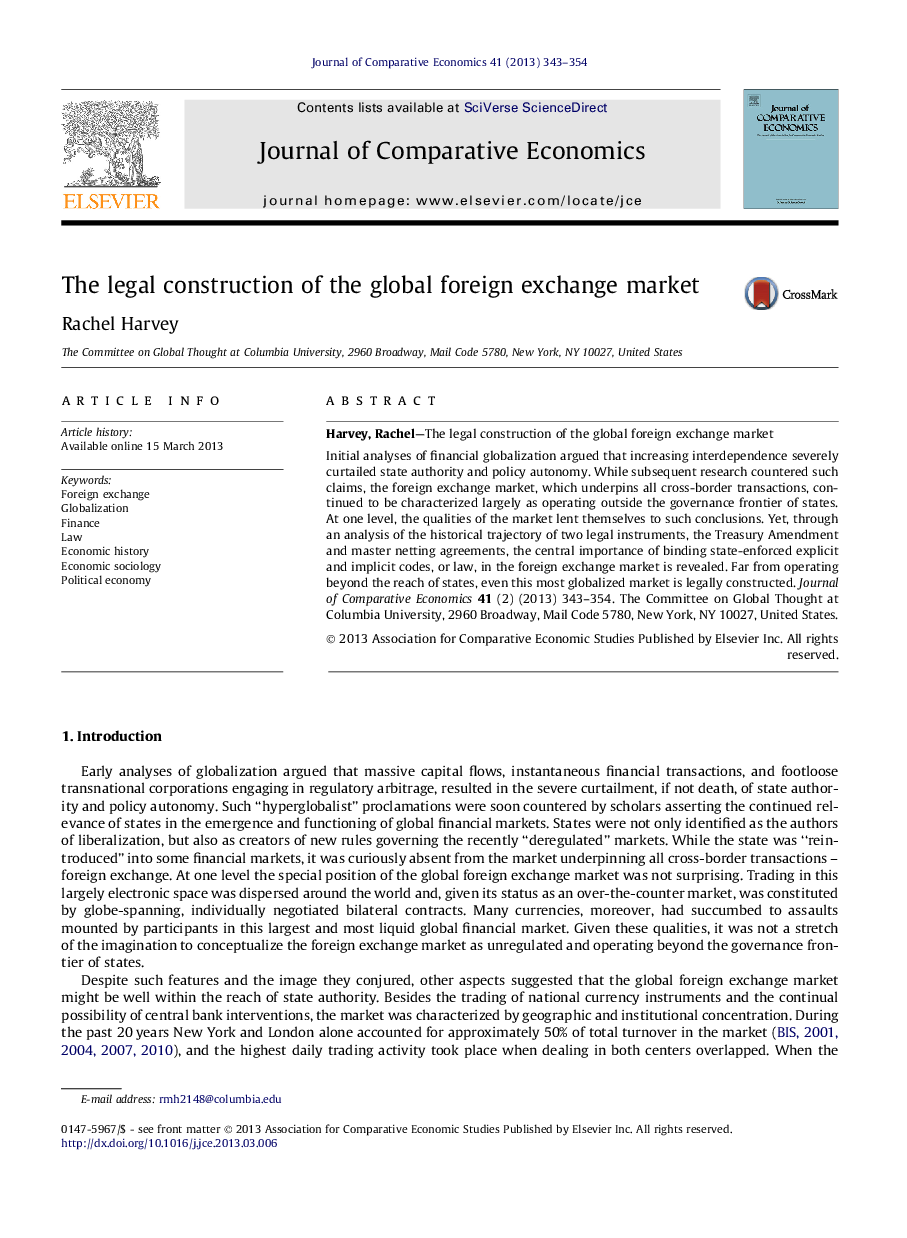| Article ID | Journal | Published Year | Pages | File Type |
|---|---|---|---|---|
| 5092208 | Journal of Comparative Economics | 2013 | 12 Pages |
Initial analyses of financial globalization argued that increasing interdependence severely curtailed state authority and policy autonomy. While subsequent research countered such claims, the foreign exchange market, which underpins all cross-border transactions, continued to be characterized largely as operating outside the governance frontier of states. At one level, the qualities of the market lent themselves to such conclusions. Yet, through an analysis of the historical trajectory of two legal instruments, the Treasury Amendment and master netting agreements, the central importance of binding state-enforced explicit and implicit codes, or law, in the foreign exchange market is revealed. Far from operating beyond the reach of states, even this most globalized market is legally constructed.
